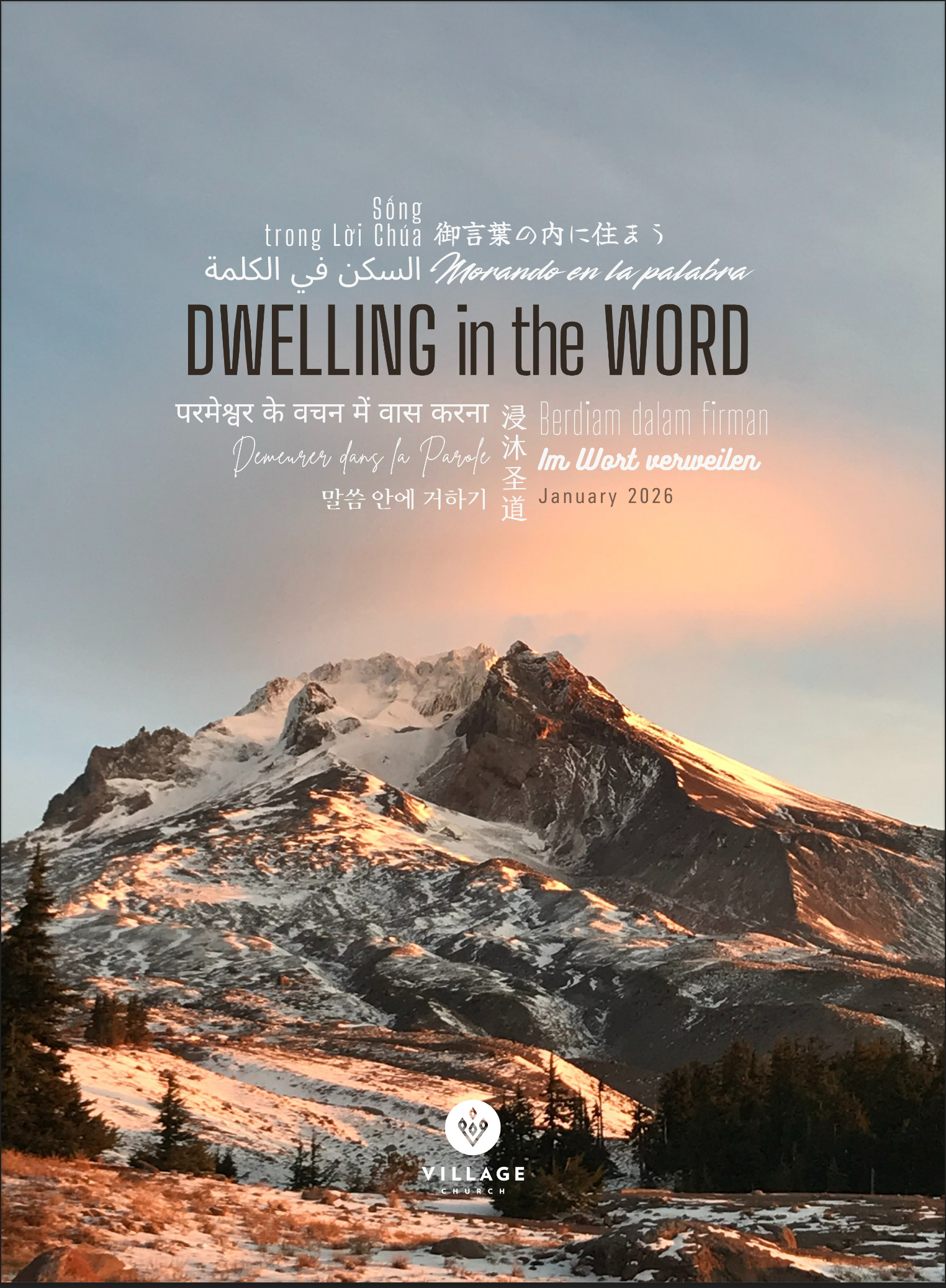We are launching Village’s own monthly devotional books in 2026. Each edition includes daily Scripture readings, DNA Group guides, Villager interviews, ministry highlights, and devotional reflections written by members of our own church community. Our prayer is that as we experience God’s Word and pray together, we will grow deeper in faith, closer in community, and more attuned to God’s voice in our lives.
The January edition is available for pickup in the Sanctuary lobby this Sunday. It is printed in English, Chinese, Korean, and Spanish. A suggested donation of $8 can be given via QR code, cash, or check. Questions? Email
devotional@villagebeaverton.com
